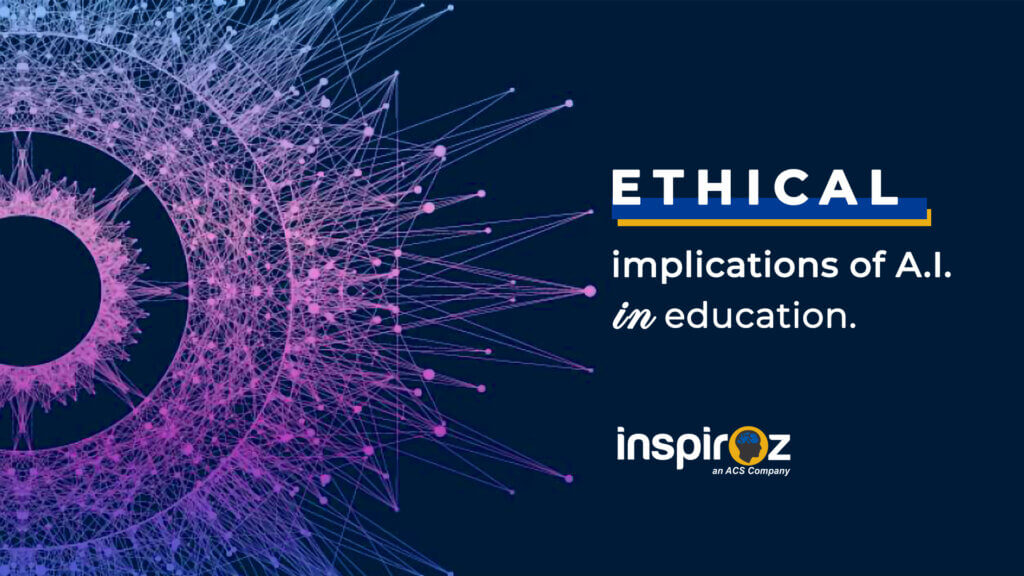The ethical considerations and challenges of using AI in education (privacy, data security and more…)
Artificial Intelligence (AI) in education is bringing in a new era of customized learning paths, dynamic assessments and automated feedback systems.
Even with all the benefits, it is important to take into account the ethical issues and challenges associated with integrating AI into educational systems.
Privacy Concerns and Data Security:
At the forefront of ethical dilemmas in AI educational integration is the safeguarding of data privacy.
AI frameworks access extensive student data, encompassing personal details, learning trajectories and potentially biometric information.
Such extensive data aggregation prompts apprehensions regarding its potential misappropriation, illicit access and security breaches.
Some Stats:
-
A 2022 study conducted by the Center for AI and Digital Policy revealed that 70% of parents are concerned about the privacy of their children's data on AI-powered learning devices.
-
According to a 2023 report published by the International Association of Privacy Professionals, 60% of colleges and universities lack the necessary resources and expertise to put strict data protection measures in place.
Data Privacy Challenges:
- Data anonymization:
- Effectively anonymizing student data is crucial to protecting privacy. However, achieving true anonymity while still enabling effective AI applications remains a challenge.
- Data ownership and access:
- Determining who owns and controls student data collected by AI systems is complex, requiring clear policies and regulations.
- Opt-out options:
- Students and parents should have the right to opt out of having their data collected or used by AI systems.
Proposed Resolutions:
- Implementing data minimization principles:
- Collecting only the data necessary for AI functionalities and regularly deleting unnecessary data can reduce potential risks.
- Enhanced transparency and accountability:
- Schools should be transparent about how student data is collected, used, and stored, and provide mechanisms for parents and students to access and control their data.
- Stronger data security measures:
- Schools need to invest in robust data security protocols, including encryption, access control, and regular security audits.
Beyond Data: Algorithmic Bias and Fairness
Another crucial ethical concern is the potential for algorithmic bias in AI educational tools.
Bias can occur during data collection, algorithm development, or even implementation, leading to unfair or discriminatory outcomes for certain student groups.
AI Ethical Challenges:
-
Detecting and mitigating bias:
- Identifying and mitigating bias in algorithms is a complex and ongoing process.
-
Ensuring equity and fairness:
- AI systems should be designed to promote equity and fairness for all students, regardless of background or ability.
-
Maintaining human oversight:
- Human oversight and intervention remain essential to ensure that AI systems are used ethically and responsibly in education.
Possible solutions:
-
Diverse data sets:
- Training AI models on diverse data sets that represent the entire student population is crucial to mitigate bias.
-
Regular audits and evaluations:
- AI systems should be regularly audited and evaluated for bias and fairness issues.
-
Teacher training and support:
- Teachers need training and support to understand and address potential biases in AI educational tools.
The Human-Machine Balance:
While AI offers significant potential to improve education, it should never replace the vital role of human educators.
A delicate balance is needed between leveraging AI capabilities and ensuring that human interaction and connection remain at the core of the learning experience.
Balance Challenges:
Overreliance on technology:
- Overdependence on AI can lead to a dehumanization of education and limit opportunities for critical thinking, creativity and social interaction.
Teacher job displacement:
- Concerns exist that AI might replace teachers, leading to job losses and a decline in the teaching profession.
Possible solutions:
-
Complementary roles:
- AI should be seen as a tool to complement and enhance teachers’ work, not replace them.
-
Human-centered design:
- AI systems should be designed with human values and ethical principles in mind.
-
Focus on social-emotional learning:
- AI can support social-emotional learning but should not replace the irreplaceable role of human connection and empathy in this area.
Concluding Thoughts:
AI presents a constellation of prospects and ethical challenges in the educational sector.
By addressing concerns around data privacy, rectifying biases, and maintaining human oversight, AI’s potential to foster a more equitable and effective learning environment can be fulfilled.
This requires a joint effort from educators, policymakers, technologists, and guardians, ensuring that AI acts as a catalyst for advancement, not a detriment to ethical, human-centric education.




